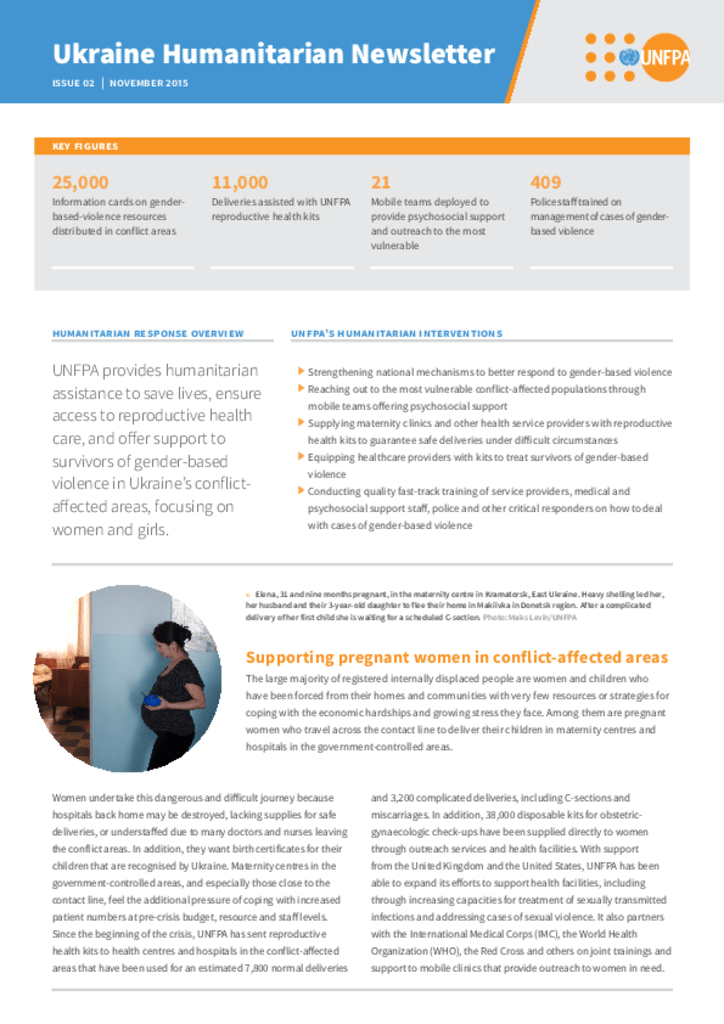
Ukraine Humanitarian Newsletter, Issue 02, November 2015
Resource date: 30 November 2015
Author: UNFPA Ukraine
The large majority of registered internally displaced people are women and children who have been forced from their homes and communities with very few resources or strategies for coping with the economic hardships and growing stress they face. Among them are pregnant women who travel across the contact line to deliver their children in maternity centres and hospitals in the government-controlled areas.
Women undertake this dangerous and difficult journey because hospitals back home may be destroyed, lacking supplies for safe deliveries, or understaffed due to many doctors and nurses leaving the conflict areas. In addition, they want birth certificates for their children that are recognized by Ukraine. Maternity centres in the government-controlled areas, and especially those close to the contact line, feel the additional pressure of coping with increased patient numbers at pre-crisis budget, resource and staff levels.
Since the beginning of the crisis, UNFPA has sent reproductive health kits to health centres and hospitals in the conflict-affected areas that have been used for an estimated 7,800 normal deliveries and 3,200 complicated deliveries, including C-sections and miscarriages. In addition, 38,000 disposable kits for obstetric-gynaecologic check-ups have been supplied directly to women through outreach services and health facilities. With support from the United Kingdom and the United States, UNFPA has been able to expand its efforts to support health facilities, including through increasing capacities for treatment of sexually transmitted infections and addressing cases of sexual violence. It also partners with the International Medical Corps (IMC), the World Health Organization (WHO), the Red Cross and others on joint trainings and support to mobile clinics that provide outreach to women in need.